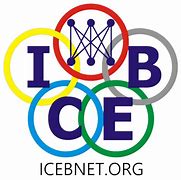Abstract
The COVID-19 pandemic has profoundly impacted the physical and mental health of frontline healthcare workers worldwide. Nurses in particular face heightened risks of adverse health outcomes including infection, mortality, mental health issues, and burnout due to their high exposure to COVID-19 patients. Although nurses often have high health awareness due to their medical background, research shows that most nurses have not adopted effective self-health management practices and fail to meet recommended physical activity guidelines. Mobile health (mHealth) apps represent a promising channel for providing external interventions to assist nurses in managing their health. They offer advantages such as real-time self-monitoring, personalized recommendations, and increased accessibility over traditional tools). However, current commercially available mHealth apps lack rigorous theoretical grounding and have shown mixed results in improving health behaviors and outcomes. This highlights the need for purpose-designed, evidence-based mHealth apps tailored to nurses' specific needs and preferences. Gamification techniques, which employ video game elements in non-game contexts, have grown increasingly popular in mHealth apps to drive user engagement and motivation. However, research on their efficacy for physical activity promotion remains limited and inconclusive. Thoughtful integration of gamification with behavior change theories may enhance outcomes, but this requires careful empirical testing. This study aims to develop and evaluate a gamified mobile health app to promote physical activity and improve health outcomes among nurses at a large hospital in Taiwan. It incorporates insights from user-centered design and goal-setting theory to create a tailored, theory-based gamified app.
Following a design science approach, initial semi-structured interviews were conducted with key stakeholders and end users at the hospital including nursing directors, health promotion staff, and 15 nurses to identify user requirements, preferences, and pain points. This provided critical inputs for the app design. A total of 296 nurses working in diverse departments and representing a range of age groups and educational backgrounds were then recruited as study participants for evaluating the developed app. The prototyping methodology was utilized to iteratively design, develop, test and refine the health app through an agile, user-centered process. App features were personalized to end user feedback at each stage. The final app incorporates core functionalities including: step counter synchronized with smartphones, body data tracking (e.g. weight, blood pressure), personalized avatar, virtual island for exploration, leaderboard, quests and challenges, goal setting and tracking, timed events and reminders, achievement badges, and social engagement features. Gamification elements such as points, levels, rankings, rewards and social interaction were seamlessly integrated to drive motivation and user engagement. The app also integrates goalsetting theory by allowing users to set personalized health goals and providing feedback on their progress. Quantitative and qualitative user testing and feedback indicate that the app was enjoyable, satisfactory, and effective in assisting users achieve their health goals. Participants reported increased exercise adherence, health awareness, and sense of accomplishment. The combination of gamification and goal-setting proved successful in promoting healthy behaviors. However, reliance on selfreported data and lack of long-term follow-up assessments are limitations. Potential biases include social desirability bias and limitations in recall accuracy.
This study demonstrates the significant potential of gamified mobile health apps to engage nurses in self-health management by meeting their preferences and needs. The participatory, user-centered design process resulted in an app tailored to users' needs and preferences, contributing to strong uptake and satisfaction. Results contribute to the growing body of literature on gamification for health promotion. Insights gained can inform future efforts to support nurses' wellbeing during global health crises. Wider implementation across healthcare institutions is recommended, as nurses worldwide face these challenges. However, rigorous longitudinal studies on the app's effectiveness and impacts on health outcomes are still warranted. Future work should also include more objective measures of health behaviors and effects.
Recommended Citation
Lu, Li Jung and Hsu, Shao Huan, "Utilizing a gamified mobile app to promote post-COVID nurses in managing their self-health" (2023). ICEB 2023 Proceedings (Chiayi, Taiwan). 68.
https://aisel.aisnet.org/iceb2023/68


